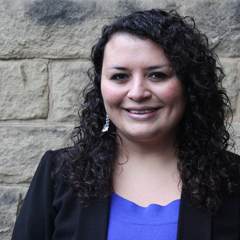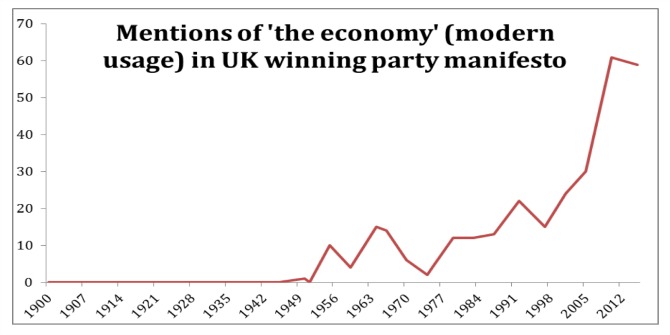

 Exploring the government’s new refugee policy, Marcia Vera Espinoza, Clara Sandelind, and Brid Ni Ghráinne argue that the process could prove to be damaging in multiple ways, all while not benefitting anyone. They conclude that it will be difficult to enforce, it will erode social cohesion, and will render the processes of integration meaningless.
Exploring the government’s new refugee policy, Marcia Vera Espinoza, Clara Sandelind, and Brid Ni Ghráinne argue that the process could prove to be damaging in multiple ways, all while not benefitting anyone. They conclude that it will be difficult to enforce, it will erode social cohesion, and will render the processes of integration meaningless.
Opposition has quickly risen against the government’s “safe return review” policy. This new policy means that after five years in the UK, the situation in a refugee’s country of origin will be reviewed and if it is deemed to be “safe”, the UK will seek to return the individual rather than offer them permanent settlement. The previous process, in place since 2005, was a straightforward process that granted settlement when a refugee applied after an initial five years leave granted by their refugee status. Reviews were carried only in exceptional circumstances. The latest policy by the Home Office of actively reviewing all individual cases after 5 years puts in question the UK’s commitment to refugee protection by changing the approach from durable to temporary solutions.
From a legal point of view, the 1951 Refugee Convention permits the cessation of refugee status where it is safe for the individual to return to his country of nationality. In other words, the review policy is not in itself a breach of refugee law. But it is only in very limited circumstances that returns would be lawful. Before removing an individual, states must engage in a thorough analysis of the conditions in the country of nationality. Changes in the circumstances need to be fundamental, such as an end to hostilities, a complete political change, and return to a situation of peace and stability. Such changes also need to be given time to consolidate before any decision on cessation is made. The individual must also be able to re-avail himself of the protection of his country which encompasses physical security and safety, a functioning government, a functioning system of law and justice, and human rights protections.
In addition, exposing refugees to instability and insecurity while awaiting the outcome of the review may raise issues under the 1950 European Convention on Human Rights, specifically the prohibition of torture and cruel, inhumane, and degrading treatment and punishment; and the right to respect for private and family life. If the aim of the ‘safe return review’ policy is to significantly increase deportations, it is unlikely that this can be done in conformity with international refugee and human rights law.
The policy also means that because the refugee status granted in the UK will not longer be secure, it will be more difficult for refugees to rebuild their lives, one of the main aims of refugee protection and durable solutions. Organisations working with asylum seekers and refugees in the UK agree that this new policy will create renewed uncertainty about refugees’ future, risking their stability at work or the continuation of their studies. This sense of unsettlement can also have harmful effects in refugees’ mental health and can increase their socio-economic vulnerability. After years of displacement and long periods of waiting for a response on their asylum applications, refugees will now be subject to a review that puts on hold their pathway to citizenship.
In this sense, the policy breaks refugees’ process of integration by making them feel unwelcome. And with that, nobody wins. A policy of deterrence based on a hostile environment does not necessarily stop asylum applications. What is worse, it prevents refugees from becoming the active members of the society they want to be and damages social cohesion.
The “safe return review” policy is in this way deeply morally problematic. When someone becomes a refugee, they lose not just protection of their human rights but, crucially, a place to call home. All meaningful human activity requires as a minimum a home – a secure place on earth. Most of our relationships, plans, and life choices are bound to a specific place, or on a choice we make to move to another place where we also feel secure. Every life decision – from making friends, to having children, sending our children to school, starting an education, getting a job, starting a business, and so on – depends on where we live. Being placed in prolonged limbo, a consequence of this new policy, makes it impossible to make any such decision for the future. To deprive someone of the legal security of having a permanent right to residency is therefore to deprive them of the ability to live as an autonomous human being.
Refugee protection ultimately must include providing refugees with a home, from which meaningful human activity can take place. The “safe return review” policy does the opposite. Instead of giving refugees the basic security of a place to live permanently, it threatens to send them into secondary displacement, which from a moral perspective is inhumane and cruel.
_____
 Marcia Vera Espinoza is a Postdoctoral Research Associate with the Prospects for International Migration Governance in the Politics Department at the University of Sheffield, and Member of the Migration Research Group. She researches on the dynamics of regional migration governance and refugee protection in South America. Follow her @MarciaVeraE.
Marcia Vera Espinoza is a Postdoctoral Research Associate with the Prospects for International Migration Governance in the Politics Department at the University of Sheffield, and Member of the Migration Research Group. She researches on the dynamics of regional migration governance and refugee protection in South America. Follow her @MarciaVeraE.
 Clara Sandelind is a Leverhulme Early Career Postdoctoral Research Fellow in the Politics Department at the University of Sheffield, and Member of the Migration Research Group. She researches the relationship between migration and the welfare state, as well as the ethics of refugee protection. Follow her @clarasandelind.
Clara Sandelind is a Leverhulme Early Career Postdoctoral Research Fellow in the Politics Department at the University of Sheffield, and Member of the Migration Research Group. She researches the relationship between migration and the welfare state, as well as the ethics of refugee protection. Follow her @clarasandelind.
 Brid Ni Ghráinne is Lecturer in the School of Law at the University of Sheffield, and Member of the Migration Research Group. She researches refugee law, the protection of internally displaced persons, and statelessness. Follow her @nighrainne.
Brid Ni Ghráinne is Lecturer in the School of Law at the University of Sheffield, and Member of the Migration Research Group. She researches refugee law, the protection of internally displaced persons, and statelessness. Follow her @nighrainne.









I do not understand why the idea of sending a refugee back to their home country once it is safe is so controversial. By definition a refugee is someone who INTENDS to go back once conditions on their homeland allow safe return. In other words, refugees are not immigrants who left their country to make a future in another land. They were running for their lives.
Brexshit happens.
The UK response to terrorism is not unity is not solidarity. The UK response is not stronger together. The response of the YUK is to turn its back on Europe and leave the European Union. This act of self harm and harm to our neighbours and others in Brexit is the way forward for the YUK.
Refugees are merely a pawn in the game of xenophobic chauvinism that the bigots of Britain now represent in the world of global politics.
Morality is irrelevant and ignored 100%. Good luck to the YUK.